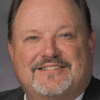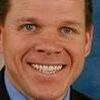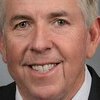‘We’re real people’: Missouri’s local public health officials face burnout, mistrust and threats
Audrey Gough has been with the Shelby County Health Department for 34 years. She’s handled other public health emergencies, like the H1N1 swine flu pandemic in 2009.
The COVID-19 pandemic, though, represents a challenge unlike any other she’s faced.
“There’s a lot of things different about the environment in which we are educating,” Gough said. “The reception of the education is much different than it was back, let’s say, 10 years ago. Right now, this has become more of a politically driven pandemic, where it’s more about the politics involved than about the health of the individuals in our community.”
Gough said she’s worked hard to provide the latest scientific updates to her community — but the reception hasn’t always been appreciative.
“It’s been a really big problem because we’re getting slammed from all directions from those who are very scared — ‘Why aren’t you doing this?’ — to those who say that this is a hoax and ‘How dare you tell me to wear a mask, I’m going to do what I want to do,’” she said. “So we’re trying to keep a happy medium and trying to make sure that everybody hears the same thing at the same time.”
As reported COVID-19 cases continue to climb at record rates in Missouri, the community response is largely delegated to local health officials. When health departments push for measures like stay-at-home orders and mask requirements, local officials bear the brunt of extreme responses from a public that often fails to understand how public health works. Officials are facing a generalized mistrust of government along with personal threats and burnout.
Limited resources dedicated to public health mean fewer employees and more hours for those on the job. Across the country, at least 27 state and local health leaders have left their jobs since April, according to reporting from the Associated Press and Kaiser Health News.
Jan Morrow, director of the Ripley County Health Department, has worked with the department for 41 years. When COVID-19 first came to Missouri, she said she worked 67 days straight.
“It can be very nerve-wracking, trying to do all of the things that need to be done and making sure you don’t miss anything,” she said.
She’s worked a lot of overtime in the past few months.
“When you live in a small rural community like this, of 14,000 people, and you’ve been here the number of years that I’ve been here, you know families, you know their children, and you know those children’s children,” she said
Morrow has been taking calls even when she’s at home.
“I think one of the things that has enabled me to maybe get people more comfortable and understand the virus a little more is that they know where I live. They can always contact me at home if something comes up with a family member,” she said.
One of the biggest challenges is a lack of public understanding of the work done by local health departments. When public health work is going well, it tends to go unnoticed.
“When we do our jobs well, you don’t even know we’re there,” said Lynelle Phillips, assistant teaching professor in the University of Missouri’s public health department said. “You go out to restaurants and you take it for granted that the food is safe.”
And people are often skeptical of an authority they’re unfamiliar with.
“All of the sudden, we have this pandemic, and health departments are emerging into the spotlight and telling people what to do — you’re probably pretty resentful of that,” Phillips said.
Sarah Czech, public health educator with the Cass County Health Department, says an overall suspicion of government doesn’t help things.
“And a lot of times, they’ll see the health department, because we are a government agency, as no different than any other governmental agency — so there are already the seeds of distrust,” she said.
Andrew Warlen, health director for Cass County and president of the Missouri Public Health Association, said he’s faced threats for his promotion of social distancing measures.
“We have very few tools in the toolbox,” he said. “And a couple of them are really just education, the social distancing thing, and that type of approach and changing your daily habits. And I think many people see us as just trying to take away their freedoms and ruin their fun.”
After a local homeowners association decided to close a neighborhood pool because it worried it couldn’t enforce social distancing, a woman called Warlen to say that she hoped he would die.
“I’ve had people drive by, during the time that we had businesses that were not essential being closed, saying, ‘Open us,’ ‘You’re killing us’ — those types of things,” he said.
Like many other teenagers, Warlen’s son graduated high school this spring. Warlen said he would have much preferred a normal graduation and a celebration with family and friends.
“We did not do those things, in the interest of keeping people healthy,” he said. “It’s really hard to communicate to people that, yes, we’re public health people, but we’re real people.”
Warlen said he’s seen a lot of skepticism about public health officials having a secret agenda.
“The problem is, people think we have some ulterior motive,” he said. “I can’t speak for everyone who’s in public health, but I can speak for everyone I know in public health. There is no ulterior motive. We’re trying to better the disease.”
Diane Weber, director of the Missouri Association of Local Public Health Agencies, said she’s seen similar patterns across the state.
“The public health people, who are the most dedicated folks I’ve ever worked with in my life, are trying to do the right thing and protect their community as best they can, and not everyone appreciates that effort,” she said.
In Cooper County, public health nurse Melanie Hutton described a continual stream of negative reactions from the community.
“It kind of feels at times like you’re being slowly pecked to death by a chicken,” she said.
Larry Jones, executive director of the Missouri Center for Public Health Excellence, said many people are experiencing a typical, human reaction to the restrictions.
“Most people were home, unless they were essential workers, for six weeks to two months,” he said. “That means, ‘I don’t like being cooped up, I don’t like being told that I can’t go play with the neighbor, or I can’t go do whatever it is that I want to do.’ And that creates a normal rebellion on their part.”
Jones also said he’s noticed a trend of people worrying that adhering to recommended behaviors like wearing masks will make them look afraid.
“And yet, we don’t think anything about the fact that we need to wear seat belts to be protected in car accidents, and we certainly want our children in car seats,” he said.
In Shelby County, Gough said she is trying to maintain a positive attitude.
“It can be very lonely for administrators when they’re doing their job and keeping the health department running, doing what they normally should be doing on top of addressing a pandemic at the same time,” she said.
Community recognition makes a difference, she said.
“I’ve lived here all my life, except going to college for four years,” she said. “And I have a personal vested interest in what I do, because these are people I grew up with. I’m taking care of their parents, grandparents, overseeing their children, making sure we keep everybody healthy and safe… so it’s rewarding when people recognize what you do.”
Please support The Macon County Home Press by subscribing today!
You may also like:







